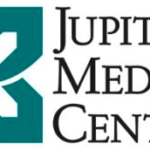July 25, 2019 – A parent’s level of psychological distress may influence how well adolescents in the juvenile justice system respond to mental health interventions for substance use and sexual risk, according to a researcher at FIU’s Center for Children and Families.
The study found that adolescents with highly distressed parents did better with a family-based intervention, whereas adolescents with mildly or not distressed parents did better with an adolescent-only intervention.
“There is little research on how parents’ mental health issues affect how well adolescents respond to psychological interventions, especially for interventions that target adolescents’ use of substances and their sexual risk behaviors,” said Mei Yi Ng, assistant professor in the FIU Department of Psychology and lead author of the study. “These findings may help clinicians match adolescents with the intervention that is likely to benefit them the most, especially adolescents involved in the juvenile justice system.”
Researchers recruited 47 sets of parents and their adolescent children, who were charged in juvenile drug court for non-violent offenses, to participate in five sessions of a family-based or an adolescent-only intervention, intended to reduce substance use and prevent HIV.
In the family-based intervention, parents and adolescents learned strategies to handle their emotions in healthy ways, and ways to help the adolescent build the motivation and skills to avoid using substances and practicing unsafe sex. In the adolescent-only intervention, adolescents learned information about commonly abused substances, HIV and sexually transmitted infections, as well as health behaviors such as exercise and sleep.
The study found that among the teens with highly distressed parents, those who participated in family-based intervention were less likely to use marijuana and used marijuana less frequently than those who participated in the adolescent-only intervention. Among the teens with mildly distressed parents, those who participated in adolescent-only intervention were less likely to use alcohol than those who participated in the family-based intervention.
Researchers also found that the teens with highly distressed parents engaged in a larger number of unprotected sexual acts compared to teens with mildly distressed parents, regardless of which intervention they received.
“Questionnaires or interviews that include questions about parents’ psychological distress may help clinicians to identify the type of intervention that may be most helpful to each adolescent,” said Ng. “This screening approach can help us improve behavioral health services for them in the future.”
The study was funded by the National Institute on Drug Abuse and published in the Journal of Research on Adolescence.
About the FIU Center for Children and Families:
The Center for Children and Families is a Preeminent Program at Florida International University comprised of a nationally recognized team of researchers and service providers committed to improving the lives of children and families struggling with mental health problems. The CCF is a one-stop care facility that provides effective, low-cost treatments to more than 3,000 families each year through clinical services and research programs. With a team of more than 30 of the nation’s best researchers and experts, the assistance of federal funding and university partnerships, the CCF continues to make discoveries about the cause, process, effects and treatment of child and adolescent mental health disorders. Since its establishment in 2010, the CCF has secured more than $133m in external funding for research from sources like the National Institutes of Health (NIH), the Institution of Education Sciences (IES), the National Science Foundation (NSF), The Children’s Trust and the State of Florida, among others. The CCF also provides training and education to hundreds of students, and continuing education opportunities in evidence-based approaches to thousands of psychologists, mental health professionals and educators nationwide.
About FIU:
Florida International University is Miami’s public research university and in less than five decades has become a top 100 public university, according to U.S. News & World Report’s Best Colleges. FIU is focused on student success and research excellence, with nearly $200 million in annual research expenditures. The Next Horizon fundraising campaign is furthering FIU’s commitment to providing students Worlds Ahead opportunities. Today FIU has two campuses and multiple centers, including sites in Qingdao and Tianjin, China, and supports artistic and cultural engagement through its three museums: Patricia & Phillip Frost Art Museum, the Wolfsonian-FIU, and the Jewish Museum of Florida-FIU. FIU is a member of Conference USA, with more than 400 student-athletes participating in 18 sports. The university has awarded more than 330,000 degrees to many leaders in South Florida and beyond. For more information about FIU, visit www.fiu.edu.

























